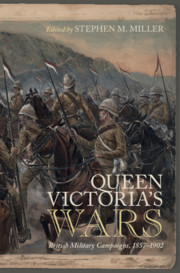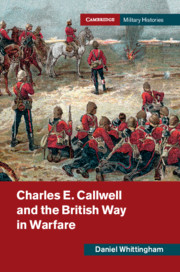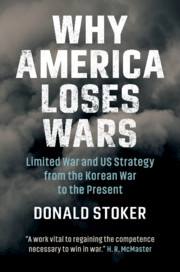Refine search
Actions for selected content:
11 results
Democracy, diversity, and disavowal: Tracing colonial lineages in India’s long wars
-
- Journal:
- Review of International Studies , First View
- Published online by Cambridge University Press:
- 20 June 2025, pp. 1-23
-
- Article
-
- You have access
- Open access
- HTML
- Export citation
3 - Johann Ewald in America
-
- Book:
- The Counterinsurgent Imagination
- Published online:
- 18 January 2023
- Print publication:
- 05 January 2023, pp 89-119
-
- Chapter
- Export citation
4 - C. E. Callwell and the British Empire
-
- Book:
- The Counterinsurgent Imagination
- Published online:
- 18 January 2023
- Print publication:
- 05 January 2023, pp 120-155
-
- Chapter
- Export citation
5 - Constructing the History of the “Modern” Laws of War
- from Part II - Gentili’s De iure belli and the Myth of “Modern War”
-
- Book:
- War, States, and International Order
- Published online:
- 21 July 2022
- Print publication:
- 04 August 2022, pp 172-212
-
- Chapter
- Export citation
1 - Introduction
-
-
- Book:
- Queen Victoria's Wars
- Published online:
- 01 June 2021
- Print publication:
- 17 June 2021, pp 1-7
-
- Chapter
- Export citation
15 - Conclusion
-
-
- Book:
- Queen Victoria's Wars
- Published online:
- 01 June 2021
- Print publication:
- 17 June 2021, pp 308-311
-
- Chapter
- Export citation

Queen Victoria's Wars
- British Military Campaigns, 1857–1902
-
- Published online:
- 01 June 2021
- Print publication:
- 17 June 2021
2 - ‘An Art by Itself’: Charles Callwell and Small Wars
-
- Book:
- Charles E. Callwell and the British Way in Warfare
- Published online:
- 19 December 2019
- Print publication:
- 16 January 2020, pp 37-80
-
- Chapter
- Export citation

Charles E. Callwell and the British Way in Warfare
-
- Published online:
- 19 December 2019
- Print publication:
- 16 January 2020

Why America Loses Wars
- Limited War and US Strategy from the Korean War to the Present
-
- Published online:
- 09 August 2019
- Print publication:
- 29 August 2019
8 - Small Wars and Great Games
-
-
- Book:
- Hybrid Warfare
- Published online:
- 05 August 2012
- Print publication:
- 09 July 2012, pp 199-224
-
- Chapter
- Export citation
